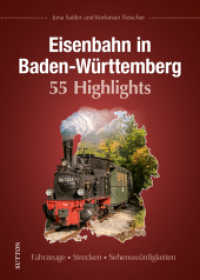Description
(Text)
This book is about the representation of gods (both as characters and as a subject for discourse) in two tragedies by Euripides: Heracles and Hippolytus. Its goal is to establish a framework for the reading of Greek tragedy and for the analysis of the various ways in which the gods of the Greek religion appear in tragic drama, and to apply it to the aforementioned plays.In this work we contend that such a framework should transcend the usual dichotomy made between a "religious" and a "non-religious" reading of Greek tragedy, and more specifically of Euripidean tragedy. This dichotomy contains in itself a cultural assumption, that is, the possibility of establishing a clear-cut distinction between a domain of religious discourse and an autonomous, profane sphere in which the representations of gods would assume a different value and meaning. There is nothing in the discursive structures of Classical Greece that allows us to posit something of the kind. The elements that appear to us as questioning the traditional representations of gods in Greek tragedy can be seen from this perspective.
(Table of content)
Preface 1 Poetry, epistemic shift, and the representations of gods 1.1. The process of epistemic shift1.2. The relevance of poetry1.3. The polycentric character of Greek cults1.4. The Homeric-Hesiodic paradigm1.5. The possibility of a Greek Enlightenment2. The tragic genre2.1. Tragedy in its context 2.2. Tragedy as spectacle2.3. The megatext of tragedy2.4. Modalities of discourse2.5. Some specific cases3 First exemplification: the Tragic Heracles3.1. General questions3.2. Heracles the character3.3. The conflict surrounding the altar3.4. The importance of "tyche"3.5. The debate between Amphytrion and Lycus 3.6. Heracles' return3.7. The catastrophe3.8. A new ethical model4 Second exemplification: the treatment of Hippolytus and Phaedra4.1. Hippolytus and cult4.2. The "philia" of man and goddess4.3. Hippolytus' exceptional "physis"4.4. Phaedra's rhesis4.5. The transformation into cult figure4.6. The godsBibliographyIndex Locorum







